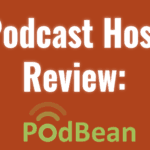Eight Tips for New Podcasters

The keys to success in podcasting reside, of course, in equal parts motivation, intuition, inspiration and inhalation. The last one – inhalation – deals with learning from the experience of others and make smart decisions based on what has worked for others.
For new and aspiring podcasters who can certainly benefit from others, here are eight podcasting tips that can help to improve your chances of success and increase your satisfaction with the entire podcasting experience.
Related reading: how to start a podcast
1. Sign up for Podcast Newsletters
As podcasts and podcasting have gained in popularity and notoriety, so has the number of email podcasting newsletters. Because podcasts bridge such a wide gap of knowledge, these email newsletters range from focusing on jobs in the industry, industry trends, content producers, market strategy, new podcasts and, most important, a plethora of resources for new podcasters.
For example, PodNews offers podcast news like Axios beginning a daily podcast to a list of podcast conferences and meetups (which obviously are all canceled due to the public health crisis) and job openings like Director of Branded Podcasts at iHeart Media.
Hot Pod is another newsletter that offers podcasters and podcast fans a wide spectrum of information. For new and aspiring podcasters, for example, there is an article by Rob Byers titled, “I Heard You Record in Closets” about getting good sound at home.
2. Focus more attention on your podcast episode notes
Episode notes are typically associated with a specific episode of your podcast, while a show description is associated with your entire series. Unfortunately, people often refer to episode notes as “show notes.”
Writer Dan Misener has a wonderful article in Medium about using episode notes properly to market your podcast.
Misener explains that Apple provides podcasters with up to 4,000 characters for episode notes and his brief survey found that podcasters use only 256 characters as an average –only six percent of the space allotted to them to attract listeners.
According to Misener, search-friendly episode notes don’t just help new listeners find your podcast. They can also help existing listeners search within their own podcast libraries.
Finally, Misener recommends that podcasters be sure to include guest names, episode outlines and summaries, and relevant links in their episode notes.
3. Reach out to podcast review sites for coverage
As podcasts have proliferated so have podcast review sites. Discover Pods is one of the largest sites for podcast content and it has a specific menu for Podcast Reviews and Podcast Spotlight. For instance, recently, I reviewed “The last Degree of Kevin Bacon.” Also, they have an on-going campaign called Podcast Spotlights. The latest features The Michael Cheney Show.
There are numerous other review sites and you can contact them and request a review.
4. Guest Podcasting
Guest podcasting is one proven way to enhance your own podcast. In many cases, frequent guests on podcasts often start their own podcast after an experience as a guest. Adam Grant from the Worklife podcast was a frequent guest on other podcasts before beginning his own. Comedian Paula Poundstone was a Wait Wait Don’t Tell Me regular for years before beginning a podcast journey that eventually brought her to the highly successful Nobody Listens to Paula Poundstone podcast.
When Dallas Taylor of the Twenty Thousand Hertz podcast guested on the Switched on Pop podcast discussing record mastering, his own podcast saw an audience spike. Taylor had smartly tapped into a similar target audience on Switched On Pop and his successful guest spot attracted listeners.
There are multiple websites that manage the guest podcast process. For example, PodcastGuest.com provides services for people searching for podcasts where they can guest due to their specific expertise and podcasts looking for guests with a “very specific set of skills” as Liam Neeson might say.
5. Make your podcast topic either unique or frequently covered content with a novel approach
A long-time friend called me one day with enthusiasm boiling over into fanaticism.
“I’m going to do a podcast about the Sixers,” he said in a decibel level reserved for leaf blowers and possibly jet engines.
A quick search found over a hundred podcasts just about the Philadelphia 76ers basketball team and so many more about basketball – pro and college.
Yes, there are only so many ways to write a love story and so many topics for a podcast. But a solid rule of thumb is to either pick a topic not covered by the podcasting world or find a different angle from which to discuss a familiar topic.
For instance, business podcasts are more numerous than internet trolls but two new business podcasts managed to stand out. First, these two podcasts enjoyed excellent production values and top-notch writing, but the real key was their ability to find a novel approach to familiar business topics.
APM’s Spectacular Failures hosted by Lauren Ober investigates colossal business collapses such as Kodak, Toys R Us, Lincoln Savings & Loan and MoviePass to understand the pathology of why business successes lapsed into complacency, stultification, and incestuous battles that resulted in their eventual demise.
Wondery’s Business Wars adds the element of mortal combat to the business world with multiple episodes that pit competitors against one another for market dominance. Right now, it’s Dunkin’ Donuts versus Starbucks. Past financial battles have included Nintendo versus Sony, Macys versus Gimbels and Boeing versus Airbus.
6. Your podcast name should be self-explanatory or brilliantly clever or both
As celebrities have moved into the podcasting space, naming conventions in the podcasting world have become more conventional. Witness The Joe Rogan Show, Armchair Expert with Dax Shepard and Nobody Listens to Paula Poundstone. For the new podcaster without name recognition, however, an earworm podcast title can ease the transition into podcast success.
Straightforward titles provide listeners with a clear idea of your podcast’s subject matter. For example, NPR’s Hidden Brain, QDT’s Grammar Girl, Curiosity Daily, Chasing Cosby and Slate’s Political Gabfest all use self-evident titles to attract potential subscribers.
New podcasters should use the search function of their podcast app to make sure their potential name isn’t already taken. Also, be careful with overly long podcast names or “keyword stuffing” as iTunes/Apple Podcasts have restricted this practice.
If you do opt for cleverness, make sure the title is not too obtuse. After all, your podcast title is often your most effective marketing tool. There are even podcast name generators that you can use if inspiration is temporarily out of order.
7. Pay attention to your podcast title design
Consider the design for the Switched On Pop podcast. Co-host Charlie Harding spent a lot of time and creative energy working with a graphic designer to craft the perfect title design for the podcast.

Typically, artwork for the podcast is an afterthought and while graphic design cannot compensate for a mediocre podcast, an attractive design can stop potential subscribers from scrolling long enough to check out your podcast. Check out the graphic for Decomposed – a podcast about classical music. The image shows a graphic of a grand piano with the podcast title along the widest part of the piano.
A well-designed title design can attract new listeners by separating your podcast from that crowded visual landscape.
8. Use social media as a promotion tool
Although seemingly a no-brainer, many new podcasters still seem to subscribe to the “record it and they will come” mantra. Social media is the ideal marketing tool for two key reasons. First, social media is excellent at identifying people of shared interests. Second, you can attract large numbers of potential listeners on various social media sites.
You can use audiograms on social media. An audiogram is a static image that is converted into a video by placing audio, a waveform, and transcriptions over it. This is for audio-only podcasts. Surveys show that an audiogram performed more than five times better when shared on Facebook than a static image.
Unlike other media formats where competition is brutal, the podcasting world is still a collegial and cooperative space where new podcasters are welcomed.













Comments
Comments are closed.